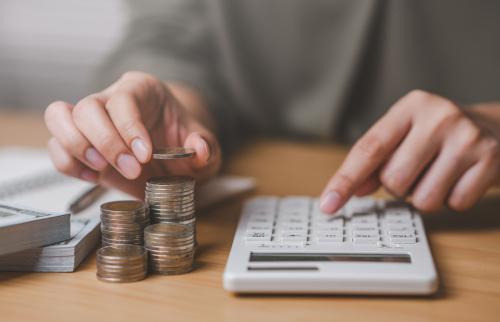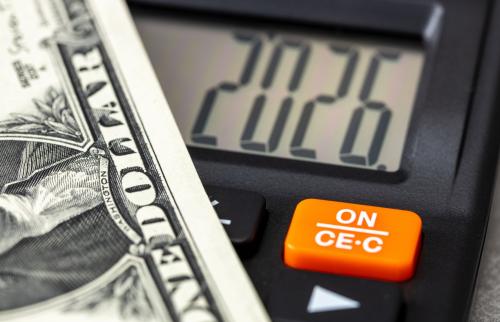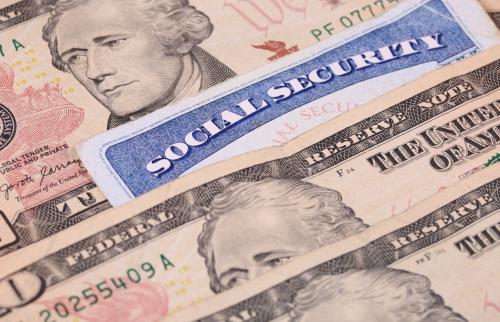The market collapse will damage the US economy, write Carol Graham and Robert Litan, but at least the cause is being dealt with.
It wasn’t long ago shortly after the Asian financial crisis when the rest of the world looked to America for guidance about capital markets. In a word, the key to America’s success seemed to be in the reliability of the information that its companies were required to produce for investors.
How much difference a few years makes. The US stock price bubble has burst, and now throughout the world, as well as within America, investors and policy makers are questioning a system of corporate disclosure that has suffered a series of embarrassments: from Enron to WorldCom, with many others along the way. The markets have delivered the harshest verdict of all to the new-found scepticism. Stocks continue to be pounded, day after day, week after week.
Lost in the finger-pointing about what went wrong, and how to fix it, is how much the corporate disclosure crisis in America has cost the US economy.
Using the same parameters that are incorporated in the macro-economic model developed by the staff at the Federal Reserve board, and assuming that roughly 2/3 of the stock-price drop can be attributed to the series of highly visible accounting scandals, the Brookings Institution estimates that the current crisis will likely reduce GDP by about $US40 billion ($74 billion), or 0.4 per cent, over the next year.
This estimate assumes that stocks remain at or near the level at which they closed on July 19, or when the Dow Jones Industrial Average was about 8,000. How much is $US40 billion? About the same amount of money that the US Federal Government is now spending on homeland security; or roughly what US consumers would pay in the form of import costs if crude oil prices increased by $US10 per barrel. If markets continue to fall, the costs will be higher.
For example, if they stay at the July 22 closing level, with the Dow at 7785, then the cost to the economy would be as high as $US45 billion.
Admittedly, there is considerable uncertainty surrounding our estimates. Economists continue to debate the magnitude and the timing of the so-called “wealth effect” of the value of stockholdings on both consumption and investment.
In addition, the roughly 5 per cent drop in the value of the US dollar since March 19 that has resulted from a loss in foreigners’ confidence in US markets should stimulate US exports, and thus partially offset any drop in domestic demand.
Nonetheless, there is general consensus that a sustained decline in stock prices should have some net negative effect on the economy.
The market eventually will recover when earnings figures that investors trust again turn up. But when will that be? If past stockmarket declines are any guide, investors shouldn’t hold their breath. While historically, stocks have quickly bounced back after sharp, sudden drops (such as occurred in October 1987, in September 1998 or after last September 11), stocks have taken years to recover after prices have dropped steadily over time in “drip-drip” fashion.
Unfortunately, the recent decline in stocks this time looks a lot more like past “drip-drips” than prior “one-day wonders”.
Optimists nonetheless are pinning their hopes on the fact that reform is quickly on its way in the form of tougher corporate governance rules of the New York Stock Exchange a lot more money for the Securities and Exchange Commission to investigate corporate records; and legislation establishing a new oversight board for the auditing profession, tough restrictions on non-audit work by auditors, and very tough new criminal penalties for corporate fraud.
In the long run, this combination should more than clean up the corporate governance mess (and perhaps even come to be viewed as overkill). But in the short run, more investigations are likely to turn up more wrongdoing, and thus add to investors’ nervousness about the reliability of corporate information generally.
What should investors elsewhere around the world think about all this? They, too, may be tempted in the short-run to sell American stocks short. Others may take some pleasure about the comeuppance that Americans seem now to be getting about their post-Asian crisis triumphalism. But in the long run, investors worldwide should draw some comfort from the fact that the US political and economic system reacted so quickly to the crisis in corporate governance, once its full extent came to light. In contrast to Japan, Americans seem less comfortable letting malaise linger, and are more likely to address problems head on. We believe this time will be no exception, and all of us eventually will be the stronger for it. In the short-term, though, the costs of the scandals are high.
The Brookings Institution is committed to quality, independence, and impact.
We are supported by a diverse array of funders. In line with our values and policies, each Brookings publication represents the sole views of its author(s).



Commentary
Op-edShares Crash Has a Silver Lining
July 25, 2002